German medals commemorating the visit of
Kaiser Wilhelm II to Palestine in 1898
|
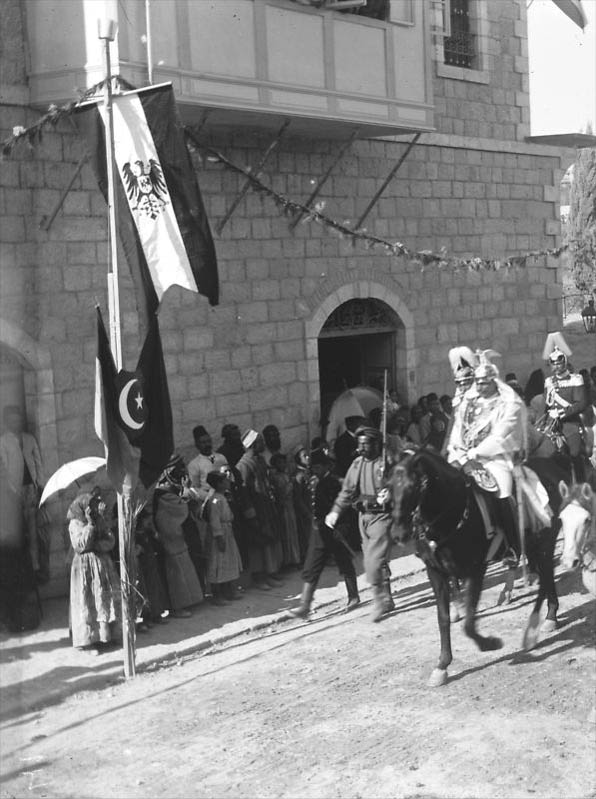 |
In
1898 the German emperor Wilhelm II (1859-1941) and his wife Augusta
Viktoria made a triumphal entry into Jerusalem as multitudes
gathered at Jaffa Gate to welcome the Prussian King and German
monarch. The visitor left his mark on Jerusalem. He inaugurated the
German Lutheran Church of the Redeemer and amongst other
things donated a large sum of money for the construction of the Bikur Holim
Hospital.
During the royal visit to Jerusalem, Wilhelm also laid the
cornerstone for the later construction of Augusta Victoria (named
after his wife), a complex on Mt. Scopus that would later become a
church, hospice and hospital. Until the late 1920s, Augusta Victoria
also served as the residence of the British High Commissioner for
Palestine until he moved to Armon HaNatziv. |
|
|
|
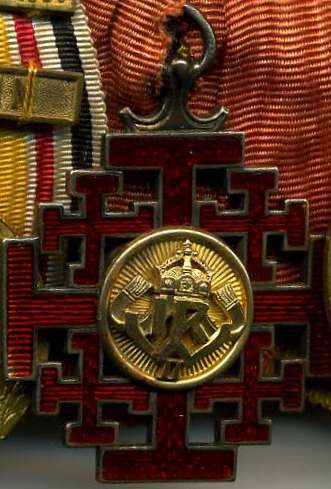 |
Jerusalem
Cross
The Jerusalem Cross ("Jerusalem-Erinnerungskreuz
1898") was awarded to members of Kaiser Wilhelm II's entourage
that accompanied him on his visit to Jerusalem in 1898. This
included staff officers, his personal bodyguard ("Leibgendarmerie")
and other attendants.
The medal consisted of a Jerusalem Cross (made up of four
smaller crosses around a larger central one) in red enamel edged
in gold hung on a red ribbon. |
|
|
|
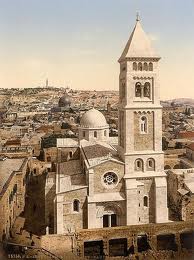 |
A
particular purpose of the travel to Palestine was the inauguration
of the Lutheran Church of the Redeemer in Jerusalem. Built on land
given to King William I of Prussia (after 1870 Kaiser Wilhelm I) in
1869 by Sultan Abdülaziz of the Ottoman Empire, the church was
constructed from 1892-1898. For the dedication of the church,
the Kaiser Wilhelm II entered the city on horseback through to
specially made ceremonial arches, one a gift of the Ottoman Empire
and one a gift from the local Jewish community. The church was
dedicated on 31 October, Reformation Day, 1898. At the dedication,
Wilhelm said: "From Jerusalem came the light in splendor from which
the German nation became great and glorious; and what the Germanic
peoples have become, they became under the banner of the cross, the
emblem of self-sacrificing charity."
Several commemorative medals were issued. Here we present some of
them. |
|
|
|
|
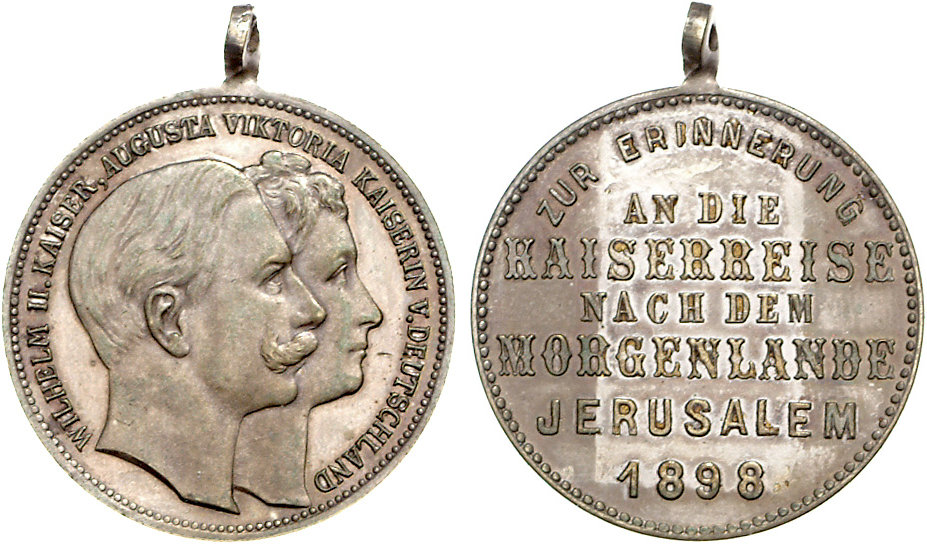 |
|
Source:www.coinarchives.com
|
|
|
|
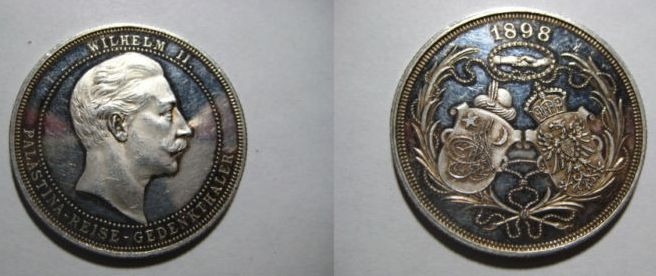 |
|
|
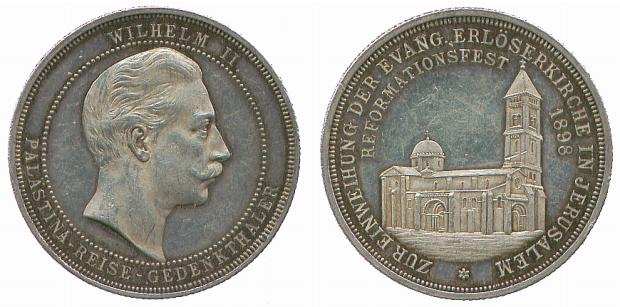 |
|
|
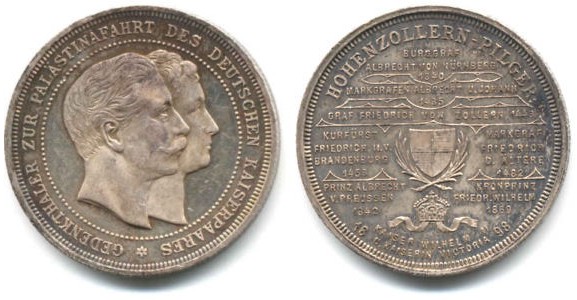 |
|
|
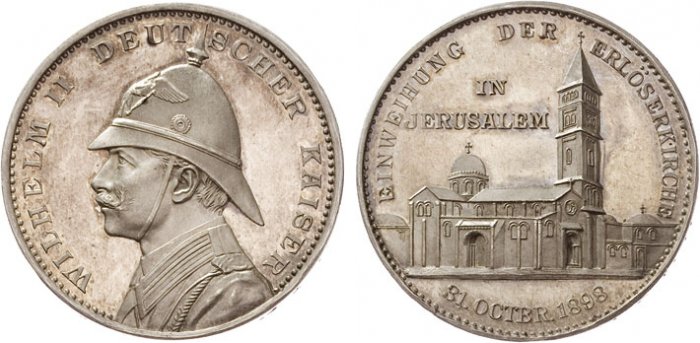 |
|
|
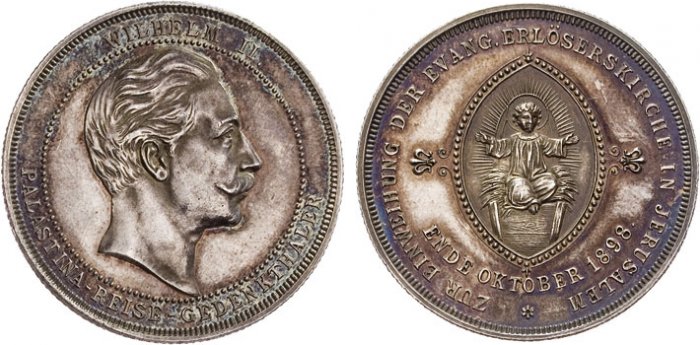 |
|
|
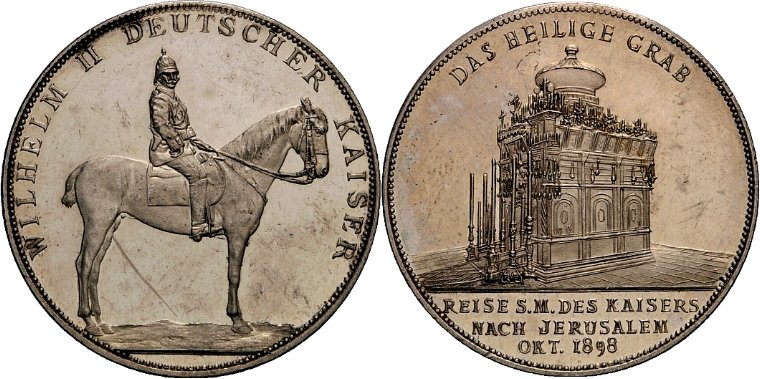 |
|
|
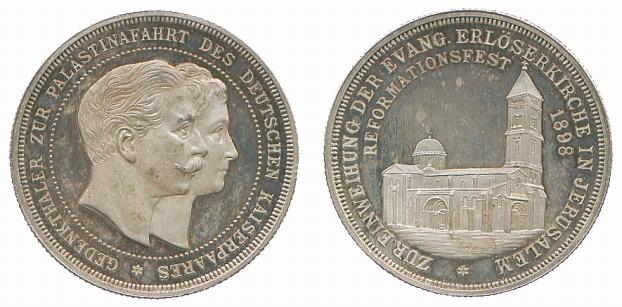 |
|
|
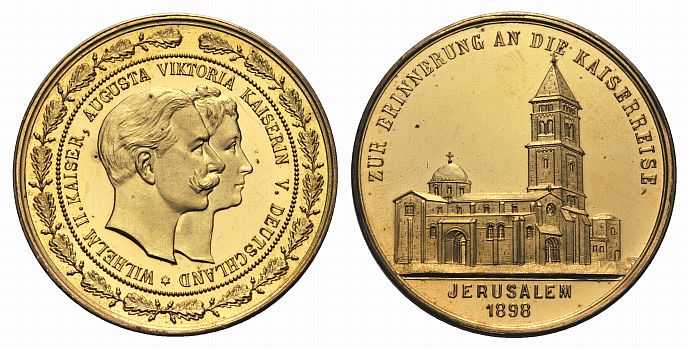 |
|
|
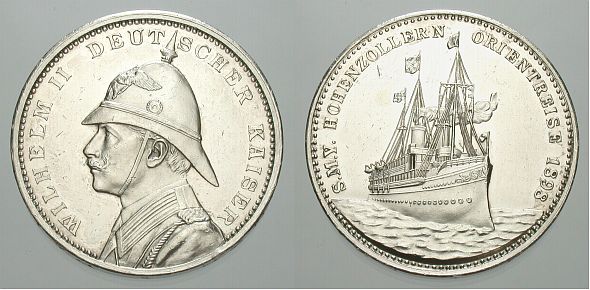 |
|
|
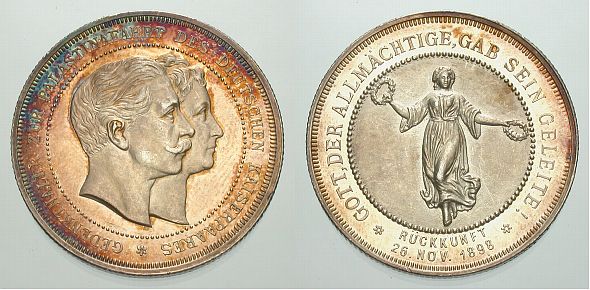 |
|
|
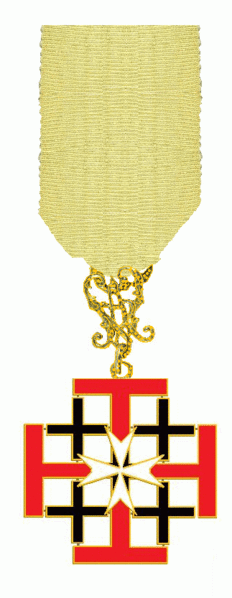 |
Cross of the Mount of
Olives
From Wikipedia, the free encyclopedia
The Cross of the Mount of Olives (German: "Ölberg-Kreuz") was
founded on the 24th. of December 1909 by the Prussian Prince
Eitel Friedrich of Prussia as a decoration to commemorate the
foundation of a hospital, the "Kaiserin Auguste Victoria-Stiftung"
(Augusta Victoria Hospital) on the biblical Mount of Olives in
Jerusalem. His very religious mother Augusta Victoria of
Schleswig-Holstein was fond of charity works and built
several churches. Emperor Wilhelm II of Germany and his wife
Augusta Victoria had visited Jerusalem in 1898. They had pledged
to build a hospital for christian pilgrims suffering from
malaria. On the 27th of January 1907 the entire imperial family,
parents and seven children, signed the charter of the "Ölbergstiftung".
The foundation stone was placed in that same year.
The Cross of the Mount of Olives was awarded to gentleman and
ladies that contributed to the foundation. A formidable sum of
2.5 million mark was pledged by the German population. The
hospital opened its doors in 1910. |
|
|
|
|
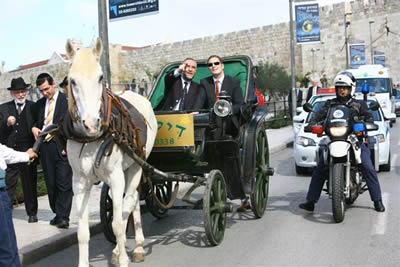 |
| Kaiser Wilhelm's great-grandson visits
Jerusalem in 2008 |
|

















